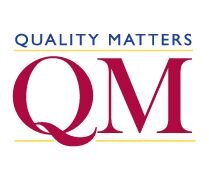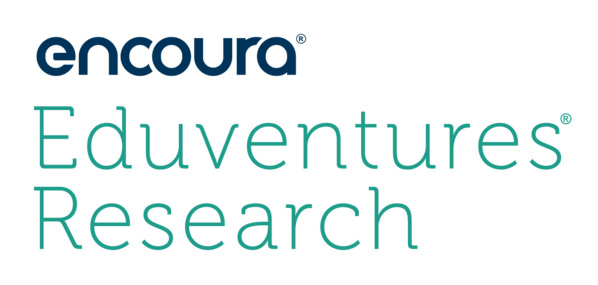
CHLOE 7: Tracking Online Learning from Mainstream Acceptance to Universal Adoption
THE CHANGING LANDSCAPE OF ONLINE EDUCATION, 2022
CHLOE 7 Survey Reveals Widespread Demand for Online Education, while Institutional Quality Assurance Strategies Lag
The seventh Changing Landscape of Online Education (CHLOE) report offers a detailed view of the online learning landscape in higher education at a pivotal point in the field’s development. The results — available in CHLOE 7: Tracking Online Learning from Mainstream Acceptance to Universal Adoption — show both ongoing growth in the adoption of online learning modalities and a gap between the application of quality assurance (QA) standards and institutional strategies to evaluate efficacy.
Nearly 99% of chief online officers (COOs) surveyed project that online elements will feature prominently in the typical student experience within the next three years. Survey co-author Richard Garrett, Eduventures Chief Research Officer at Encoura, observed that “online leaders anticipate significant acceleration in online adoption across students and institutions over the next few years” and added that “online leaders see a future defined by hybrid models” rather than solely online offerings.
Online modalities, which include online synchronous, hybrid, HyFlex, and multi-modal models gained traction during the pandemic and are becoming important factors in the online learning landscape. Survey results indicate that meeting the needs of the vast majority of learners moving to these formats will require institutions to put forth a greater commitment to QA standards. This constitutes a considerable challenge to many institutions, as most have voluntary or optional policies for meeting institutionally-adopted quality standards. Currently, only 50% of COOs report that their institutions require asynchronous online courses to meet quality standards. But only 27% of schools have this same requirement for online synchronous courses, and even fewer require quality standards for other modalities.
The survey provides a wealth of additional insights into the nuanced ways in which online learning is developing within higher education. Highlights from these findings include:
- Institutional strategies must be re-aligned to meet student demand. “As an increasing number of students are opting into online courses, institution strategies, budgets and perspectives are evolving as noted in the survey reports,” said Connie Johnson, Chief Academic Officer and Provost, Colorado Technical University. “Educators are well served to understand how institutions are responding to the growing demand for online and hybrid courses, credentials and programs.”
- Learning delivery mode preferences vary by age. “It is just fascinating to see that chief online officers predict a near-term future shift in opposite directions for traditional undergraduates, adult undergraduates and graduate students, with respect to modality preference, such that traditional undergraduates will incorporate more online learning in predominantly on-ground courses and programs, while adult undergrads and graduate students will retain some component of on-ground study in predominantly online courses and programs,” said Lori Williams, President and Chief Executive Officer, NC-SARA.
- Mental health is an essential component of online student services. “It is heartening to see that institutions are responding to the needs and well-being of their students impacted by the pandemic, with online mental health services having the highest growth rate as reported by COOs,” explained Eric Fredericksen, Associate Vice President for Online Learning and Professor, University of Rochester.
Since 2016 QM and Eduventures Research have partnered to fill the knowledge gap about how online learning is actually being managed at post-secondary institutions in the United States. To accomplish this, they survey the people who are most closely involved in this endeavor: those serving as chief online officers at their institutions. These CHLOE surveys have produced in-depth yearly reports — and two during 2020, including a special report on the pivot to remote teaching.
This year’s report comes at an exciting time for online learning. Cultural shifts over the last few years have opened up exciting new possibilities in this space, creating opportunities that would have seemed unlikely or impossible in the past. The report provides a comprehensive overview of contemporary online higher education. Sasha Thackaberry, Vice President of Student and Academic Services at Pearson, describes the report’s relevance: “The CHLOE Survey provides a critical insight into the strategic and operational direction of higher ed institutions, from two-year teaching colleges through research universities. As a resource, the CHLOE reports are useful in communicating trends and projected futures in higher education, which is increasingly digital.”
The report was made possible through the support of the CHLOE Advisory Panel; Platinum sponsors iDesign, Six Red Marbles and Everspring; and Gold sponsors NC-SARA and the Online Learning Consortium.
The principal authors of the report are Richard Garrett (Encoura Eduventures Research) and Dr. Bethany Simunich (Quality Matters) with Senior Editor Dr. Ron Legon (Quality Matters) and Contributing Editor Dr. Eric Fredericksen (University of Rochester).

